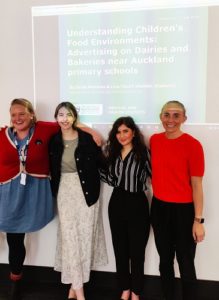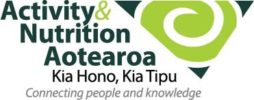28 Jan Sharing the load – partnerships key to Wai Auckland project wins
In this final instalment in our series about Wai Auckland, we learn how the project’s strong partnerships have led to innovative research and the ability to ride out the rough times.
2020 was a year that could be appropriately described, to quote Her Majesty the Queen in 1992, as an annus horribilis.
But while COVID-19, the Auckland drought, and an earlier funding reduction combined to thwart Wai Auckland’s progress, its solid partnerships have helped keep the project afloat.
“Having strong and effective partnerships has been key to Wai Auckland’s success from the outset,” explains project manager Amanda Brien. “Especially during COVID when most of Auckland Regional Public Health Service staff, including me, were redeployed to the pandemic response.”

Alongside Auckland Council, Auckland Transport and Watercare, a key relationship has been with the University of Auckland.
“The University has helped design the project’s evaluation and, so far, 11 university students have worked on six of our Wai Auckland projects,” Amanda says. “During COVID-19 outbreaks, these were able to continue remotely with online supervision, and there were some outstanding results.”
Sugary drink ads in the outdoors
Amanda says the most innovative project has been with the University’s Dr Victoria Egli, using Google Street View (GSV) to assess the amount of sugary drink advertising in outdoor environments near schools.
“GSV is a free online tool that enables you to easily explore large areas in a cost and time efficient manner,” says Amanda. “We started by looking at the bus-stop marketing near schools and found that around 13 percent of it is for non-core food and beverages.”
Amanda says the findings highlighted an opportunity to influence policy; something Wai Auckland is working to make happen with its local government partners.
“We were thrilled to get this research published in the international Nutrients journal. We are now looking at researching advertising on dairies and convenience stores near schools, something that hasn’t been done before in New Zealand.”
RefillNZ helped promote tap water
Striking up a relationship with RefillNZ – a Wellington-based not-for-profit- has been another success for Wai Auckland.
“RefillNZ aims to prevent plastic pollution by making it easier to fill your reusable bottle on the go,” Amanda says. “Their mission is to sign up as many RefillNZ stations as possible around New Zealand; places such as cafes, restaurants, pharmacies, retailers – anywhere that has freely available tap water and is happy for passers-by to stop in and top up.”
While RefillNZ’s main motivation is a healthy planet and Wai Auckland’s main motivation is healthy people, both projects are seeking success through the promotion of tap water.
“That’s made our relationship mutually beneficial, and meant that rather than creating a whole new campaign, Wai Auckland has been able to leverage RefillNZ’s strong brand and not create ‘more noise’ in that space.”
Amanda says Wai Auckland’s partnerships have made it resilient and demonstrated that projects don’t need to succumb to challenges – even when those challenges are a pandemic, a drought and no budget!
“Losing funding forced us to re-think what outcomes were most important and how we could get there without financial support. For us it’s about shaping good policy for better provision of drinking fountains, and restricting the availability and marketing of sugary drinks, she says. “Both those things require you to broker relationships, manage them effectively and identify shared goals – but neither require funding.”
And Amanda remains positive about Wai Auckland’s future.
“Ensuring our aims are high on partners’ agendas is an on-going challenge but we’re confident we will get there, it might just take longer than our original three-year timeframe.”
Want to know more about how to set up a project like Wai Auckland? contact Amanda Brien, Wai Auckland Project Manager.

